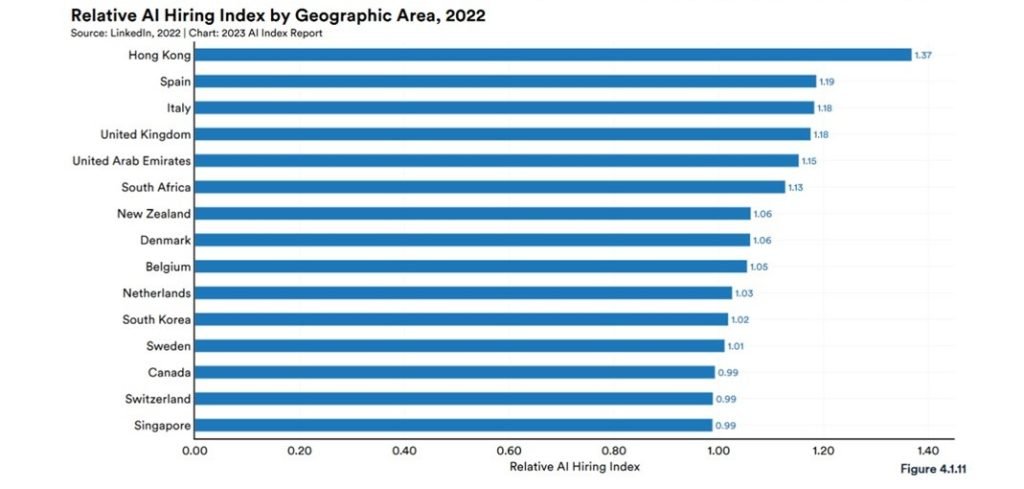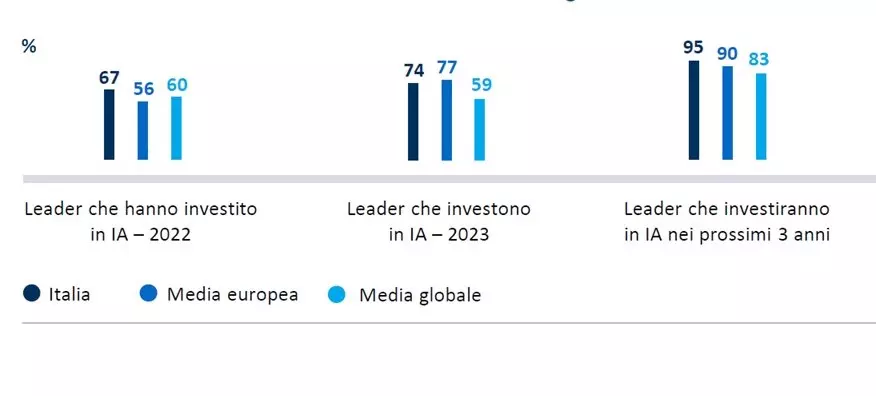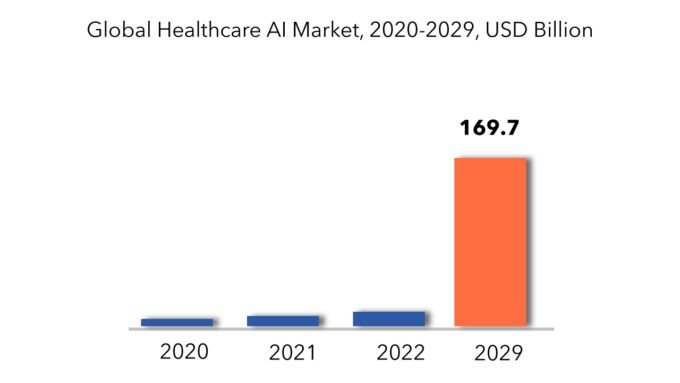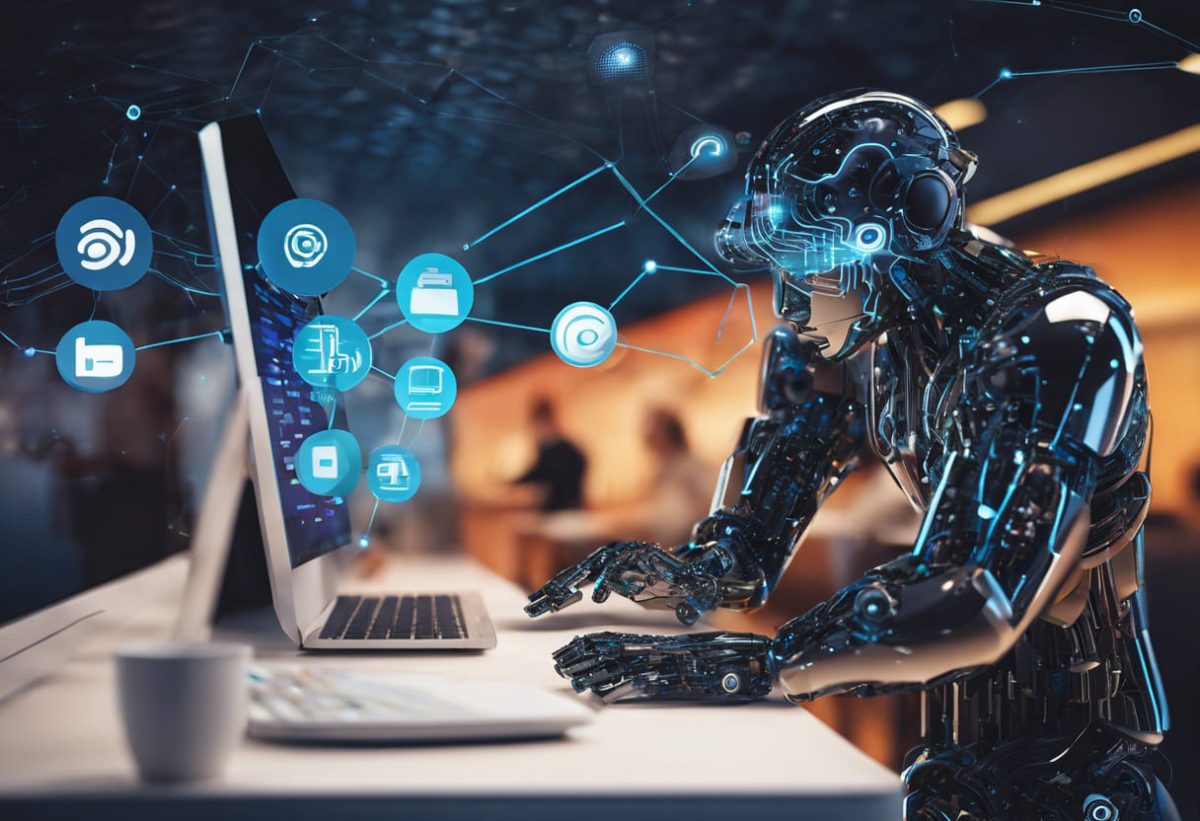Table of Contents
In an increasingly connected and technology-driven world, Artificial Intelligence (AI) emerges as an undisputed protagonist, radically transforming the way we tackle daily challenges. If you’ve followed our previous journey into the AI universe, you’re already aware of how this advanced form of intelligence has surpassed the bounds of imagination, influencing key sectors and redefining our way of life.
Create in seconds:
- Blog articles and social media posts
- High-quality professional images and graphics
- Personalized translations and product descriptions
All tailored for you—original and fast.
Today, we will delve further into this technological revolution, focusing specifically on the benefits of artificial intelligence. If the previous article laid the groundwork, now is the time to explore the multiple facets of how AI translates into tangible benefits for individuals and businesses.
From automation that accelerates processes to the ability to enhance complex decision-making and create personalized user experiences, we will immerse ourselves in the details of how AI is shaping our present and outlining the future. So, whether you’re already fascinated by the potential of AI or simply want to deepen your understanding of this extraordinary field, get ready for a new phase of our exploration, where we will highlight the benefits of artificial intelligence that fit into our ever-evolving world.
The Benefits of Artificial Intelligence in Numbers
Exploring the benefits of artificial intelligence is like discovering a hidden treasure: we realize how valuable it is, but often underestimate the real impact it has on our daily lives and on sectors crucial to our well-being. Imagine a world where AI is like an invisible ally, constantly working behind the scenes to enhance our experiences and positively shape the areas that touch us most closely.
Statistics from Market Splash on the benefits of artificial intelligence have revealed that ‘by 2035, AI could increase the productivity of the global economy by up to 40%.’
Other numbers provided tell us that:
- AI could generate $15.7 trillion for the global economy by 2030.
- The adoption of AI could grow the global GDP from 1.2% to 3.7% annually over the next ten years.
- The healthcare sector could save $150 billion per year by 2026 through the use of AI.
- By 2030, AI could reduce costs and increase revenues in the banking sector by $1 trillion.
As we delve into the benefits of artificial intelligence, we realize that its positive impact extends well beyond our expectations. This invisible ally operates silently, making each day a unique and enriching adventure.
From personalized suggestions that enhance your productivity to entertainment recommendations that reflect your unique tastes, AI is transforming our daily lives into a tailored experience.
In critical sectors like health, AI is opening new horizons. More accurate medical diagnoses and personalized treatments are the tangible result of a technological ally working in synergy with healthcare professionals to improve quality of life.
Our online life becomes a dynamic landscape, shaped by the predictive abilities of AI. Social media surprises us with attention-grabbing content, online stores present us with tailor-made products, and streaming platforms anticipate our entertainment desires. It’s as if AI has the power to read our minds, creating a digital world that responds to our individual needs.
By continuing to explore and embrace these new technological frontiers, we can shape a future where artificial intelligence is truly a reliable ally, enhancing our lives without compromising the fundamental values that define us.

From this graph, it can be noted that Italy ranks third globally for the Relative Hiring Index related to AI by Geographic Area.
But let’s delve into the details of the sectors and dynamics where the benefits of artificial intelligence manifest most prominently.
Process Automation
The benefits of artificial intelligence and AI in general, with its ability for automatic learning and advanced analysis, have triggered a revolution in process automation. Imagine a world where repetitive and tedious tasks are entrusted to the intelligent capabilities of machines. Companies in every sector, from production to logistics, are harnessing the advantages of artificial intelligence to optimize their operations. For example, fully automated assembly lines, managed by advanced algorithms, enable continuous and efficient production, freeing human resources for creative and decision-making tasks.
Artificial Intelligence (AI) plays a fundamental role in automating business processes, offering added value through its ability to handle complex tasks and improve the precision and efficiency of automated operations. The use of AI in production processes results in numerous advantages, including:
- error reduction;
- resource optimization;
- increased productivity.
Business process automation has become crucial for competitiveness, and Artificial Intelligence (AI) represents an added value in this context. Utilizing AI can enhance the quality of work performed.
Automation focuses on creating automatic systems for executing repetitive and standardized tasks, reducing time and human errors. This strategy aims to process large amounts of data quickly and efficiently, ensuring precise and reliable results.
AI adds value to automation, allowing systems to improve over time, adapting to new data and situations Through Machine Learning, more intelligent automation systems can be developed, capable of adapting to changes in data and business activities.
Despite the benefits, there are challenges, such as costs and the need for advanced technical knowledge. Implementation requires careful planning to ensure security and data protection.
Enhancement of Decision-Making
One of the advantages of Artificial Intelligence (AI) is its ability to analyze vast amounts of data and use this information to improve decision-making. An example of this application could be a system capable of examining a large number of real-time data, providing crucial information for business decisions.
Sectors such as finance and human resource management are increasingly embracing AI-based solutions to assess risks, predict market trends, and optimize business strategies. Thanks to the use of increasingly sophisticated algorithms, AI is becoming a reliable advisory resource, helping companies make more informed decisions and successfully navigate a rapidly evolving environment.
Multiple sectors are leveraging the potential of AI to enhance their operations and business decisions. For instance, in the finance sector, AI is used to analyze financial market data to predict trends and adopt more efficient investment strategies.
Similarly, in the field of human resource management, AI is employed to assess candidates and optimize the personnel selection process. However, it is essential to consider the challenges and ethical issues related to the use of AI, such as data privacy and the risk of perpetuating and amplifying any biases present in the datasets used.

The chart shows the percentage of Leaders who have invested, are investing, and will invest in Artificial Intelligence not only in Italy but worldwide.
User Experience Personalization
Artificial intelligence has a significant impact on user experience, meaning the user’s experience when on online platforms. This implies that services such as streaming platforms, online stores, and social media are leveraging AI to personalize content based on user preferences and behaviors. Thanks to the use of machine learning, intelligent recommendations dynamically adapt to individual users, thereby improving user satisfaction and loyalty.
A concrete example of this is receiving personalized suggestions on streaming platforms like Netflix or Spotify, generated based on the user’s viewing or listening data. Moreover, in online stores, it’s possible to receive recommendations for products similar to those previously viewed, based on browsing data analysis. All of this leads to the creation of a unique experience for each user, enhancing the interaction with online platforms.
It’s essential to emphasize that the use of these technologies also raises ethical and privacy concerns. The analysis of user data must comply with privacy regulations and respect individuals’ rights. Furthermore, there’s a risk that AI may create ‘bubbles’ that limit the variety of content users are exposed to, favoring only what aligns with their past behaviors. It’s crucial, therefore, to balance personalization with diversity and equity in the consumption of online content.
The benefits of artificial intelligence are evident when it comes to improving user experience, but it’s crucial to consider ethical implications and ensure privacy protection. In addition, it’s necessary to prevent AI from creating information bubbles that limit the variety of content users are exposed to. We must find a balance between personalization and diversity to ensure fair and comprehensive consumption of online content. Only in this way can we fully harness the potential of AI in optimizing the user experience on various types of online platforms.
Advancements in Medicine and Scientific Research
Artificial Intelligence (AI) has truly shaken the foundations of the healthcare sector, opening doors to new opportunities and revealing revolutionary improvements. Imagine this innovation as a fast track to cutting-edge therapies and medications, transforming the research process and enabling the discovery of incredibly effective treatments.
But that’s not all: the benefits of artificial intelligence not only emerge in medical research but are also changing the way medical diagnoses and treatments are conducted. Envision a world where massive amounts of data, the renowned big data, are analyzed by AI to detect crucial patterns for healthcare professionals. This means that doctors can rely on advanced tools to identify pathologies through radiological images and identify genetic patterns, enabling them to be more effective in providing personalized care.
Furthermore, the use of intelligent algorithms in scientific research has accelerated the discovery of new drugs and deepened the understanding of biological phenomena. This implies that pharmacological research can benefit from AI’s ability to analyze vast amounts of data and identify correlations and patterns that might escape the human eye.
And now, let’s delve deeper: AI simplifies the daily life of the healthcare sector, creating clear and concise summaries of medical conversations and bringing a new level of precision and effectiveness to health professionals’ diagnoses.
But be cautious not to only talk about the advantages of artificial intelligence because there’s a challenge behind each benefit. The implementation of AI in healthcare poses ethical risks and requires careful management to ensure the security of data and patients In short, AI is our key ally in transforming the healthcare sector, bringing exciting promises along with a weight of responsibility. And, as the World Health Organization (WHO) reminds us, it’s crucial to manage this technology ethically, especially when dealing with sensitive data.
Despite ethical and data security challenges, it’s undeniable that AI has the potential to radically transform the health and medicine sector, leading to significant advancements in disease detection and treatment. With the right regulation and oversight, AI can be a valuable ally for medical professionals and patients, paving the way for a safer, more efficient, and personalized future in healthcare.
From diagnosis to the development of new therapies, AI is driving change, earning recognition from the World Health Organization (WHO) for its contribution to raising health standards through clinical studies, medical diagnoses, and treatments.

This graph illustrates the projected increase in the use of artificial intelligence in the global healthcare market by 2029.
The WHO’s guidance on the responsible use of AI in healthcare serves as the compass pointing us in the right direction, emphasizing the importance of ethically managing this powerful technology.
AI is not just a theory but a concrete ally supporting healthcare professionals. Its ongoing evolution promises a progressively advanced future for healthcare, fueled by the dynamism of AI.
Conclusions
In conclusion, the benefits of artificial intelligence are manifold, and AI emerges as a powerful ally transforming our way of life and work. Imagine a future where technological innovation is guided by ethical awareness, ensuring that the benefits of AI are accessible to all and contribute to global well-being. We are only at the beginning of this extraordinary adventure, and our commitment to the responsible use of AI will shape the path toward a smarter and more inclusive future.
